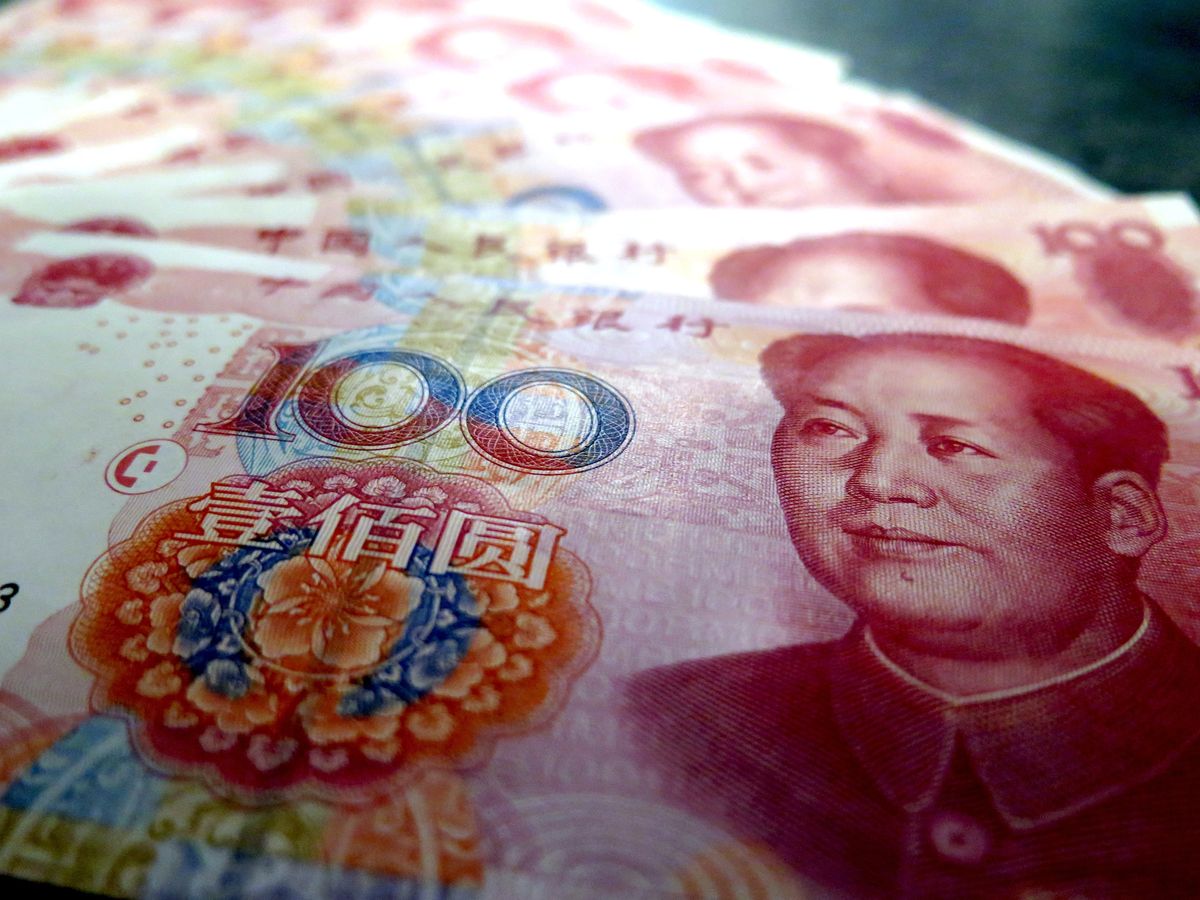China Central Bank's Resolute Stand: Bolster Yuan From 16-Year Low

The Lede: On Monday, the Chinese yuan saw a recovery from its 16-year low as China's central bank declared its commitment to sustaining the beleaguered currency amid its extended decline against the U.S. dollar and concerns over China’s post-pandemic economy struggling to gain momentum.
What we know:
- The People’s Bank of China (PBOC) made an official announcement warning global currency traders engaging in speculative actions against the yuan – also known as the renminbi – and pledging to correct “the one-sided and pro-cyclical market moves.”
- The announcement resulted in a 1% surge in the yuan – the most significant single-day increase since March. The swell comes after the yuan faced difficulties in its exchange rate against the dollar this year, experiencing a year-to-date decline of approximately 5%.
- In the last couple of weeks, financial regulators have rolled out several measures to ramp up the embattled yuan's position. Effective from September 15th the PBOC plans to reduce mandatory foreign currency deposit reserve ratio for financial institutions from 6% to 4%.
- Following a weekend meeting with Chinese commercial banks to address the matter, the central bank will now closely examine significant dollar acquisitions, Reuters reported.
- The PBOC statement emphasized that although the yuan has weakened when compared to the U.S. dollar, it has maintained a relatively steady value in relation to a diversified currency basket. But Bloomberg’s reporting showed that the bank has been shoring up the yuan in relation to exchange rates involving 23 trading partners, such as the euro, yen, and pound, through its daily reference rates since mid-August. This approach has led to the stabilization of an official benchmark used to assess the yuan's value compared to other currencies.
The background: Since China opened itself back up to the world after stringent COVID-19 lockdowns, the world's second-largest economy has struggled with a real estate collapse, reduced consumer spending and major capital outflows due to the sale of foreign-held stocks. China's real estate crisis has been primarily driven by a combination of factors, including excessive debt accumulation among developers and homebuyers, stricter government regulations to curb speculative investments – despite the national government's longstanding policies encouraging high credit utilization by local governments – and concerns surrounding the financial stability of major property developers. Data from the China Real Estate Information Corp. reveals that in July, the largest 100 property developers in China experienced a 33% decrease in new home sales compared to the previous year, the New York Times reported.
The anticipated boom in Chinese customer spending this year has not materialized. Instead, low customer expenditure has been fueled by the real estate crisis and a dramatic rise in youth unemployment rate that has reached a record 21.3%. China's GDP expanded by a mere 0.8% during the second quarter of this year, a substantial decrease from the modest 2.2% growth it achieved in the initial three months of 2023. This translates to an annual growth rate of 3.2%, a level that would rank among China's lowest in many years.
Likely outcomes/Takeaway:
- The yuan’s fall had prompted speculation about whether Beijing may be devaluing its currency to assist exporters facing challenges and counteract a worsening economic downturn, which in turn created additional tension in relations with Washington. However, Beijing has pledged to refrain from engaging in "competitive devaluation."
- A devalued yuan would enhance export prospects by reducing the cost of domestically manufactured products and services in the global market. This primarily benefits industries heavily reliant on exports, such as solar panel, battery, and electric vehicle manufacturers. Industries dependent on imported raw materials may encounter increased production expenses, and their ability to transfer these added costs to consumers varies.
- Persistent depreciation of the yuan could lead to a slight rise in leverage, as it amplifies the value of debt when denominated in local currency. This, in turn, necessitates a greater cash flow in local currency to service foreign-currency debt.
Quotables:
- "We will not hesitate to take actions when necessary to firmly correct the one-sided and pro-cyclical market moves, to resolutely address the actions which disturb market order, and to unswervingly avoid the overshooting risks in the exchange rate," PBOC.
- “The Yuan exchange rate has a solid basis to stay reasonably stable at balanced level,” PBOC.
Good Reads:
- China's central bank to scrutinise bulk dollar purchases (Reuters)
- China yuan: weak currency hits traders, travellers as customers request discounts, firms could raise retail prices (South China Morning Post)
- Get Ready for a Weaker Yuan (Wall Street Journal)
